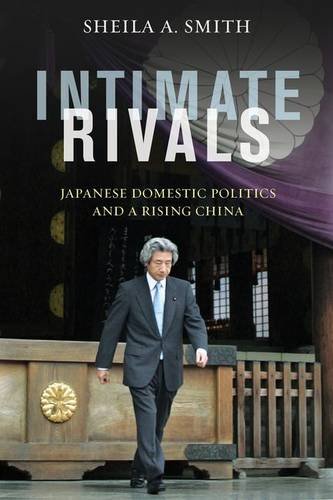

Most ebook files are in PDF format, so you can easily read them using various software such as Foxit Reader or directly on the Google Chrome browser.
Some ebook files are released by publishers in other formats such as .awz, .mobi, .epub, .fb2, etc. You may need to install specific software to read these formats on mobile/PC, such as Calibre.
Please read the tutorial at this link: https://ebookbell.com/faq
We offer FREE conversion to the popular formats you request; however, this may take some time. Therefore, right after payment, please email us, and we will try to provide the service as quickly as possible.
For some exceptional file formats or broken links (if any), please refrain from opening any disputes. Instead, email us first, and we will try to assist within a maximum of 6 hours.
EbookBell Team

4.7
106 reviewsNo country feels China's rise more deeply than Japan. Through intricate case studies of visits by Japanese politicians to the Yasukuni Shrine, conflicts over the boundaries of economic zones in the East China Sea, concerns about food safety, and strategies of island defense, Sheila A. Smith explores the policy issues testing the Japanese government as it tries to navigate its relationship with an advancing China.
Smith finds that Japan's interactions with China extend far beyond the negotiations between diplomats and include a broad array of social actors intent on influencing the Sino-Japanese relationship. Some of the tensions complicating Japan's encounters with China, such as those surrounding the Yasukuni Shrine or territorial disputes, have deep roots in the postwar era, and political advocates seeking a stronger Japanese state organize themselves around these causes. Other tensions manifest themselves during the institutional and regulatory reform of maritime boundary and food safety issues.
Smith scrutinizes the role of the Japanese government in coping with contention as China's influence grows and Japanese citizens demand more protection. Underlying the government's efforts is Japan's insecurity about its own capacity for change and its waning status as the leading economy in Asia. For many, China's rise means Japan's decline, and Smith suggests how Japan can maintain its regional and global clout as confidence in its postwar diplomatic and security approach diminishes.